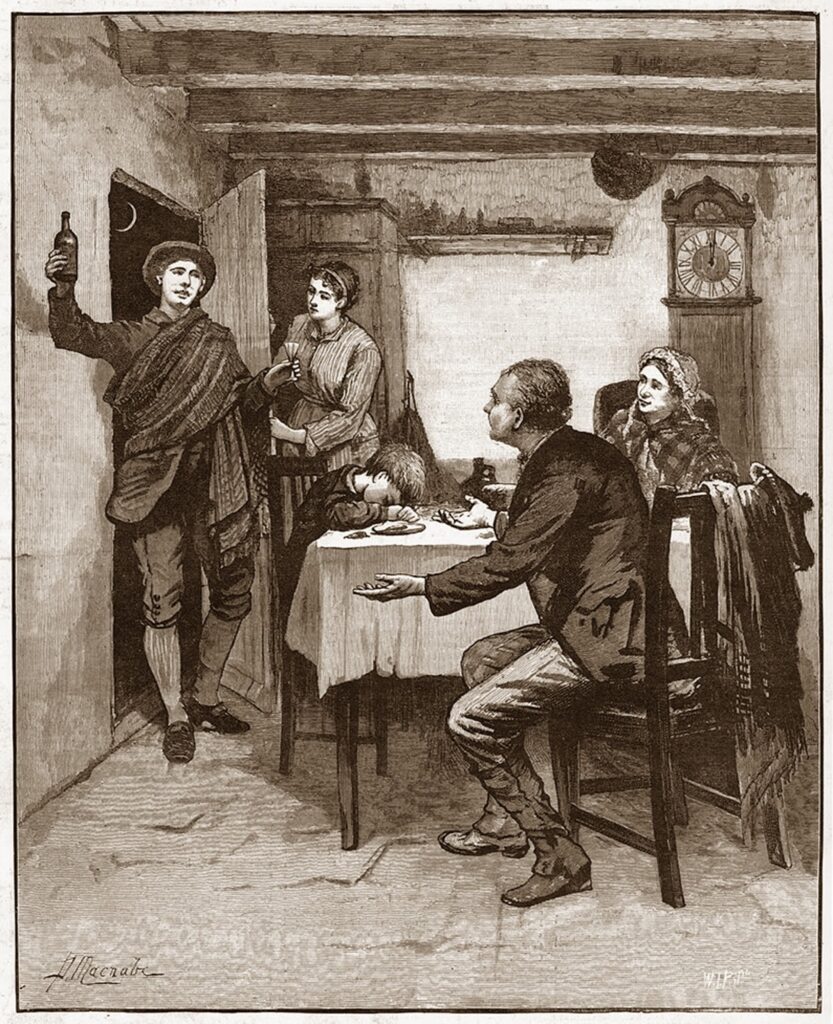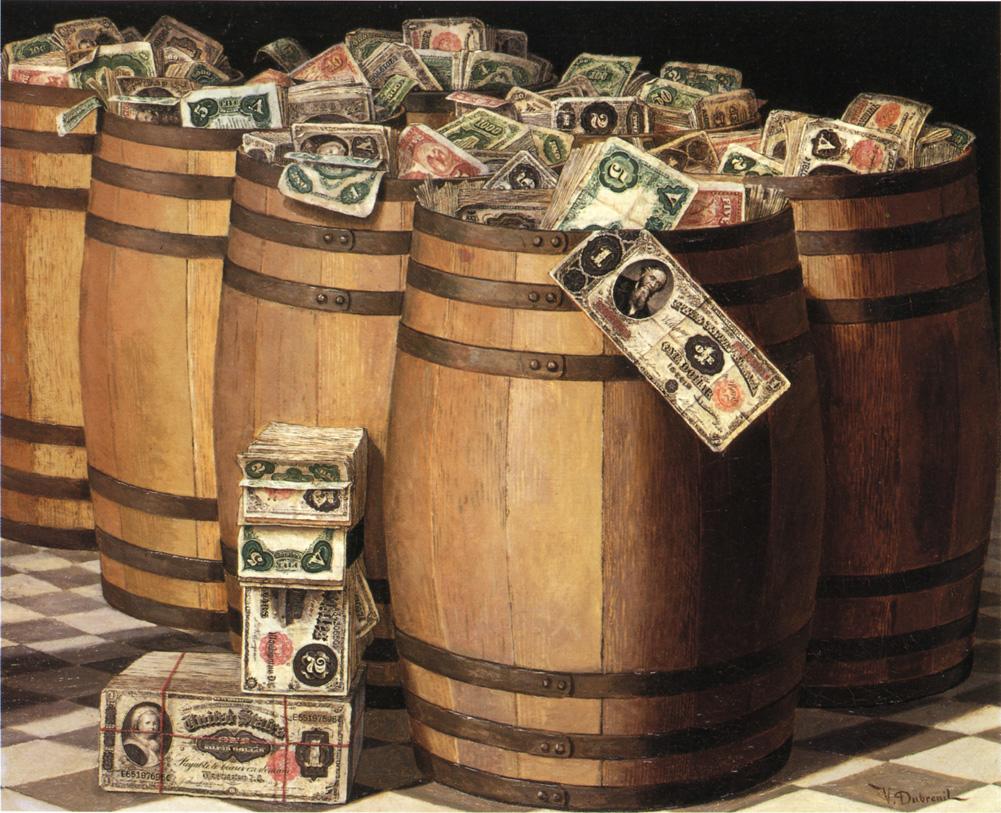
So the old year is almost at an end, and 2024 is just around the corner. The last twelve months have definitely been a roller coaster for many, and, whatever has happened over the past twelve months, the time is nearly here to start afresh and hope for better things to come. Whether you write a long list of resolutions or just have a couple of ideas kept in your head, many people have some idea of where they hope the next year is going to take them.
With such a lot potentially hanging on the new beginnings that the New Year promises, not everyone wants to leave things to chance. According to several popular traditions and superstitions, there are ways to help stack the odds in your favour for a good year ahead – which will you try this year?
First Things First

It might be tempting to sneak one last lie in, but superstition suggests that getting up early on New Year’s Day can help ensure a positive and productive year ahead. Also make sure you are wearing new clothes on New Year’s Day, otherwise you will find yourself lacking in general throughout the year to come. Feeling peckish? According to belief in Latvia, eating fish on New Year’s Day will bring you luck, as will eating herring as midnight strikes in Poland and Germany.
The first person to enter the house after the clock strikes midnight – known in some areas as the “First Foot” – has also long been an important first in Scotland and England, said to influence the prosperity and happiness of the household for the year ahead. Belief differs as to what sort of visitor is the best, but most traditions are firm that it is bad luck for the first person to enter the house to be a woman. Across England it was generally believed that a dark haired person was preferable to a light haired one, with the belief that they would bring good luck.
In Renfrewshire, Scotland the individual was expected to be tall, dark, have non-flat feet and eyebrows that didn’t meet in the middle. According to an account from Kent, the person must be dark haired. They were to ring the door bell and wait for the door to be opened, before walking through the house and out of the back door, all the while in complete silence. According to an account recorded from Mid 20th century Tunstall in Staffordshire, the first person across the threshold should be, “A tall, dark haired man with a glass of wine in one hand and a lump of coal in the other must go out of one door, walk all the way round the house and in at the other door, to bring in the New Year.”
Finally, be careful what you say about the year that is nearly over – it is considered ill advised to speak badly of it before the next year has started.
Twelve Grapes at Midnight

Who doesn’t like a grape or two? A Spanish tradition states that on New Year’s Eve – Nochevieja – Old Night – there is a way to ensure good fortune for the months to follow. All you have to do is eat twelve grapes as the clock strikes midnight. Easy, right? Just try it – eating a grape per chime is quite a challenge! Dating back to at least the early 20th century, and some say before that, each grape stands for one month of the year – but be careful which you pick, as a sour grape predicts a sour month which you really don’t want. Also beware – if you don’t finish all of the grapes then bad luck is guaranteed for the year ahead.
This tradition is so popular that in areas of Spain it is possible to buy handy tins of a dozen, pre-peeled grapes for your New Year’s celebrations.
What if grapes aren’t your thing? Never fear; there is another variation that might be more to your liking. Instead of grapes, twelve round fruits are used instead, with each person taking a bite from each one.
Bringing Things into the House

Taking items in or out of the house on New Year’s Day is believed to have great significance for the year to come. One long-held and widespread belief is that it is bad luck to take something out of the house before something has been brought in. Thankfully this is easily avoided by a family member bringing or pulling a small item into the house – a piece of coal has historically been a popular choice – in order to avert any potential ill fortune.
A 19th century rhyme from Lincoln, Lincolnshire reflects this belief:
“Take out, then take in, Bad luck will begin; Take in, then take out, Good luck comes about.”
In Derbyshire, as New Year’s Day dawned, the head of the household would solemnly take something into the house before anyone else could go out. The same was observed in Nottinghamshire, where great care was taken to pull a piece of coal into the house first thing. In Ottery St. Mary, Devon, on New Year’s Eve a silver coin, a piece of bread and a piece of coal was placed on a windowsill. Bringing them in first thing in the morning was believed to bring good luck.
What will you bring into the house on January 1st?
Getting Down to Work

Working on New Year’s Day has long been considered a bad idea, with varying beliefs regarding how far the idea of “work” extended. In general, going out to the work place was a no-no; in Devonshire, it was considered unlucky to work on New Year’s Day and miners there refused to do so from New Year’s Eve until the day after New Year’s Day. It was believed that staying home and not engaging in work of any sort would help to avoid bad luck.
This belief against working also extended to work within the home. Housework and cleaning was considered to be a bad idea. Washing clothes was considered to be particularly unlucky, with the belief that a family member would quite literally be washed out of existence if you did so. Washing clothes brought with it the risk that the person whose clothes were being washed would die within the year. The prohibition against washing could also extend as far as washing the dishes; paper plates for New Year’s Day anyone?

Spending Money
Getting the urge to buy something on New Year’s Day? The sales might be tempting, but it may be worth holding off for twenty four hours just in case. According to superstition, spending money on New Year’s Day means that you will continue to be out of pocket for the rest of the year.
In a similar vein, having unpaid bills when the New Year rolls around is said to mean you will be in debt all year, so make sure to pay off those bills before the clock strikes midnight. Paying them on New Year’s Day is too late; you’ll be paying money out all year through.
Having empty pockets on New Year’s Day is seen as a bad sign, as it means you’ll have no money in them during the year to come. Having money in your pocket on the other hand meant that you would never be short of money during the months ahead, so make sure to put some change in your pocket this New Year’s Eve!
For more fascinating superstitions all year round, check out:
Magpies and Red Skies: The Enchanting Origins of 100 Superstitions
